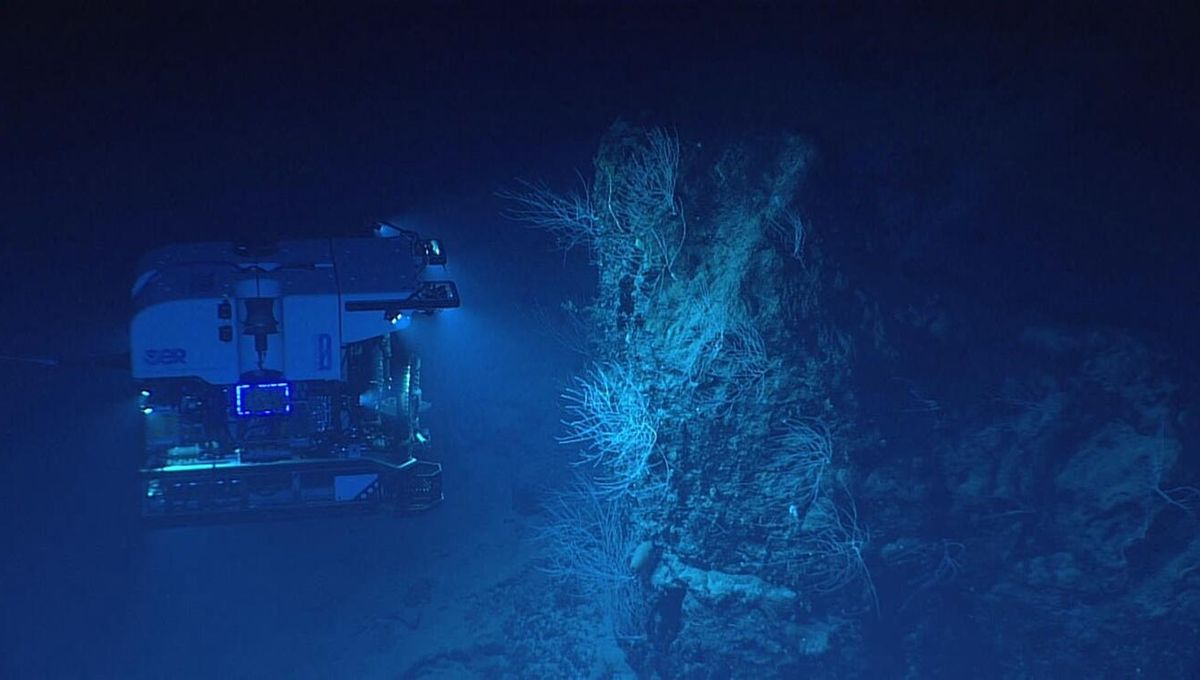
The US is looking to dramatically expand its efforts to churn up the seafloor in a new hunt for rare metals and critical resources. Supporters say the move could secure essential minerals and even lead to the discovery of new compounds, but environmental groups warn it will cause irreversible damage to marine ecosystems and “speed up the destruction of our oceans.”
The green light came in the form of an executive order issued by President Trump on April 24. The order directs federal agencies to fast-track the exploration, mining, and processing of critical minerals like cobalt, nickel, and rare earth elements from offshore seabeds.
It also calls for slashing “red tape,” boosting investment in deep-sea science and technology, and building new partnerships with allies to promote responsible seabed development.
The National Oceanic and Atmospheric Administration (NOAA) has issued a statement supporting the order, describing it as “the next gold rush” – a move that has raised some eyebrows among scientists and environmentalists alike.
Deep-sea mining has become a hot-button topic in recent years. It involves using whale-sized machines to scour the seabed for “deep sea potatoes”, polymetallic lumps that are loaded with cobalt, nickel, and other minerals needed for batteries and the so-called green revolution. These resources are then pumped to a ship on the surface through up to several kilometers of tubes, before a slurry of sand, seawater, and other mineral waste is then pumped back into the sea.
The full extent of the risks remains uncertain, but growing evidence suggests that deep-sea mining could leave a long-lasting and deeply damaging impact on fragile marine ecosystems.
In 1979, a patch of the Clarion-Clipperton Zone in the Pacific Ocean was mined in what would become a prophetic glimpse into the future of deep-sea mining. More than four decades later, scientists returned to study the site and found the seafloor was still struggling to heal.
While there were some small signs of biological recovery, the team uncovered lasting changes to the sediments and a striking absence of larger animals, highlighting the deep and long-lived scars seabed mining can leave on fragile ocean ecosystems.
Given these risks, the recent executive order has been widely criticized by environmental groups from a variety of angles.
“This is a clear case of putting mining companies’ greed over common sense. Any attempt to accelerate deep-sea mining without proper safeguards will only speed up the destruction of our oceans,” Dr Katie Matthews, Oceana Chief Scientist and Senior Vice President, said in a statement.
“This executive order flies in the face of NOAA’s mission. NOAA is charged with protecting, not imperiling, the ocean and its economic benefits, including fishing and tourism; and scientists agree that deep-sea mining is a deeply dangerous endeavor for our ocean and all of us who depend on it,” Jeff Watters, Ocean Conservancy’s vice president for external affairs, said in a statement.
Greenpeace stressed the decision is an apparent “bypass” of the International Seabed Authority, the intergovernmental body set up to regulate deep-sea mining. The executive order also calls for a review of seabed mining permits “in areas beyond the national jurisdiction,” a step that could stir tensions with the international community.
As of 2024, 32 countries have officially declared some level of opposition to seabed mining, including Canada, the UK, France, Germany, Mexico, Sweden, Denmark, and Austria. Most have called for a precautionary pause until the full risks are known, but some countries, including France, have outright banned the practice in their national waters.
“Authorizing deep-sea mining outside international law is like lighting a match in a room full of dynamite – it threatens ecosystems, global cooperation, and US credibility all at once,” Arlo Hemphill, Project Lead on Greenpeace USA’s campaign to stop deep sea mining, said in a statement.
“But this Executive Order is not the start of deep sea mining. Everywhere governments have tried to start deep sea mining, they have failed. This will be no different,” continued Hemphill.
Source Link: Trump Wants A New "Gold Rush" With Deep-Sea Mining, Despite Huge Environmental Risks